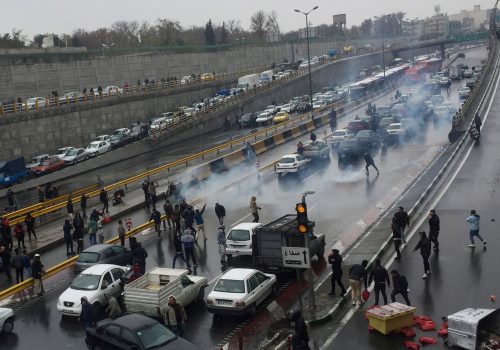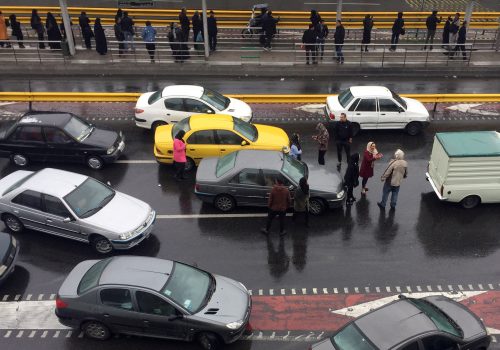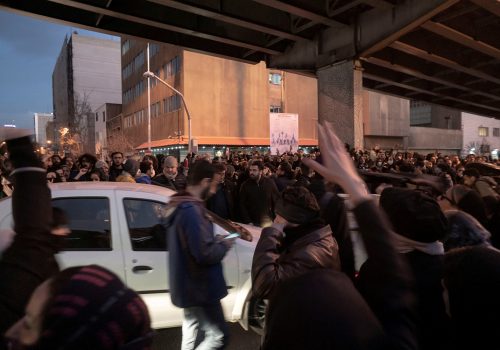Iran must end its relentless violations against the Baha’is
Iran has shown resolute determination over its desire to rob its Baha’i population of all citizenship rights. Having just marked the year 1400 in the Iranian calendar and 178 of the Baha’i calendar (March 20), let’s take a snapshot of the situation.
Iran’s human rights violations against Baha’is have been distinctly state-driven, multifaceted, and severe. Though the Baha’i Faith has never been included amongst the recognized religions in Iran, non-recognition and discrimination yielded a formal policy of hostility against its members with the establishment of the Islamic Republic of Iran. Over the decades that followed, no segment of the Baha’i population has remained untouched. The description of “cradle to grave persecution” falls short, as even a deceased member of the Baha’i Faith cannot rest in peace as Baha’i cemeteries have repeatedly been bulldozed and their burials disrupted.
The extent of the state-driven hatred that fuels their targeting is reflected in the account from a Baha’i villager in Reza Allamehzadeh’s 2011 documentary, Iranian Taboo, in which he explains that the cattle in his hamlet in north Mazandaran province were separated because Baha’i and Muslim cows should not mix. Or more recently, in April, when a Clubhouse chat room featuring Iranians inside Iran became grounds for hate-mongering against the persecuted minority.
Adding fuel to the state-driven fire of hatred has been fierce and unsubstantiated accusations against Baha’is and their beliefs from state media. Despite the thousands of press and media articles stirring animosity against them—a small sample of which are documented—a right of reply is never granted to the Baha’is. The direct link between incitement and subsequent violent attacks on Baha’is are numerous and well illustrated by the example of Semnan province.
Some of the common unsubstantiated accusations against Baha’is are that they engage in brainwashing; are the main instigators of violence against the government; have “enmity towards Islam and the Islamic system”; and work as intrepid spies for many, “from the Russian tsar and British emperor to the Presidents of the United States and Israel.” These baseless allegations have real consequences, not least because this vigorous ‘othering’ by the state apparatus against the Baha’is is buttressed by impunity.
Subscribe for more from IranSource
Sign up for the IranSource newsletter, which provides a holistic look at Iran’s internal dynamics, global and regional policies, and posture through unique analysis of current events and long-term, strategic issues related to Iran.
The murdering of Baha’is remains uninvestigated, manslaughter cases are dropped, and the group is amongst the only remaining segments of the Iranian population whose deaths do not require blood money payment. The official policy of dehumanizing the Baha’is is multifaceted. It prepares the way for state confiscation of Baha’i individual and community assets, carried out both openly—with the Iranian Supreme Court itself reading this in line with article 49 of the Constitution’s “illegitimate wealth”—and surreptitiously, through repeated court cases conjured against Baha’is—each demanding heavy bail. Additionally, numerous historical and holy sites associated with Baha’i history have been confiscated and destroyed.
As institutional racism is being better understood globally, we have become more alert to how intolerance and persecution can become so embedded that it is increasingly ‘invisible’ to the outside eye. The systematic and institutional effort to eradicate the Baha’i Faith and its traces from the land of its birth are too numerous to capture, but they include coercion and the denial of civil, political, economic, social, and cultural rights. It is critical to note that Iranian authorities instigate the need for religion to be declared in various administrative and other procedures in Iran, which can reveal one as Baha’i, thereby prompting exclusion from Iran’s universities and other tertiary educational institutions and all government employment. Self-identification also prompts direct intervention from authorities to close Baha’i businesses, dismiss Baha’is from Muslim-run private businesses, and expel Baha’i school pupils.
The dogged determination of the authorities to criminalize being a Baha’i—and the scale of governmental apparatus dedicated to its pursuit—is quite unfathomable. The extent of this institutionalized persecution can only begin to be understood by perusing the over seven thousand documents on a digital documentation depository that evidences the painful history of what has and continues to be suffered. IranWire’s 2017 documentary, The Cost of Discrimination, labels it as religious “apartheid.”
Despite the façade of religion used to target Baha’is, the persecution is sustained and embedded as a continuing political calculation. The absence of the Baha’is from the Islamic Republic’s 1979 Constitution was an early indication of this determination. Baha’is constitute the largest non-Muslim religious minority in Iran, yet are unrecognized in Article 13 of the Constitution, which states that “Zoroastrian, Jewish, and Christian Iranians are the only recognized religious minorities, who, within the limits of the law, are free to perform their religious rites and ceremonies, and to act according to their own canon in matters of personal affairs and religious education.”
Yet Baha’i rights and freedoms should be safeguarded by Article 14’s assurance that “all Muslims are duty-bound to treat non-Muslims in conformity with ethical norms and the principles of Islamic justice and equity, and to respect their human rights.” Nevertheless, the subsequent caveat that “[t]his principle applies to all who refrain from engaging in conspiracy or activity against Islam and the Islamic Republic” has regrettably been used to declare even the mere holding of Baha’i Faith as conspiracy and anti-Islamic activity. Even President Hassan Rouhani’s Citizenship Charter—which in the end was not legally binding and not submitted as a bill to parliament—excluded any reference to rhetoric that might have helped try to secure some justice for Baha’is. The political calculus—to compel the declaration of Baha’i Faith so that it can then be harshly sanctioned in every sphere of life—has been an ongoing choice by the Iranian authorities through numerous presidencies and is one they could desist from at any point in time.
However, the already extreme institutionalization of intolerance of Baha’is is being ramped up yet further. The adoption of amendments to Articles 499 and 500 of Iran’s Penal Code risks categorizing Baha’is and other religious minorities as “deviant,” contradictory, and interfering with “the sacred law of Islam,” which would lead to criminal punishment and mandatory long prison sentences. A further, more targeted measure can be seen in the minutes of a confidential meeting released by the International Federation for Human Rights, in which there is further intensification of the state’s efforts to eradicate the Baha’i community in Iran; control of movement by security and intelligence bodies and sinister cultural and educational measures against Baha’i children in schools. This is reminiscent of the evidence from Iranian government directives from 1991 and 2005—leaked and released by the United Nations—which chillingly confirmed how the elaborate policy against Baha’is is directed from the highest levels of the state and aimed to menacingly monitor them and block their progress in every sphere.
In a changing Middle East that may be slowly coming to terms with its religious pluralism—as exemplified by the Papal visit to Iraq and the United Arab Emirates—it is high time that Iran wakes up to the incompatibility of its subtle but devastating persecution of the Baha’is with the present day. In sharp contrast to their government, the people of Iran are embracing their Baha’i compatriots as fellow citizens in increasing numbers. Whether seen in the actions of some ayatollahs, members of high ranking families, or prominent Iranians more generally, the momentum is gathering speed. When the Iranian authorities catch up to their citizens’ attitudes and dismantle their long-standing and elaborate structures of hate against the Baha’is and other minorities, much-needed resources and talent will be released to building a more prosperous future for all.
Nazila Ghanea is the director of the International Human Rights Law programmes at the University of Oxford, and academic affiliate at the Bonavero Institute of Human Rights.
Image: A protester holds a picture of President Mahmoud Ahmadinejad after Friday prayers in Tehran June 19. 2009. The banner refers to the Baha'i faith. Baha'is regard their faith's 19th-century founder as the latest in a line of prophets including Abraham, Moses, Buddha, Jesus and Mohammad. Iran's Shi'ite religious establishment considers the faith a heretical offshoot of Islam. REUTERS/Raheb Homavandi


